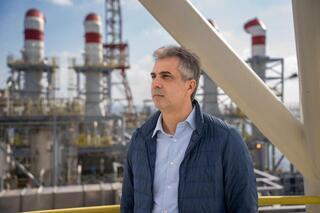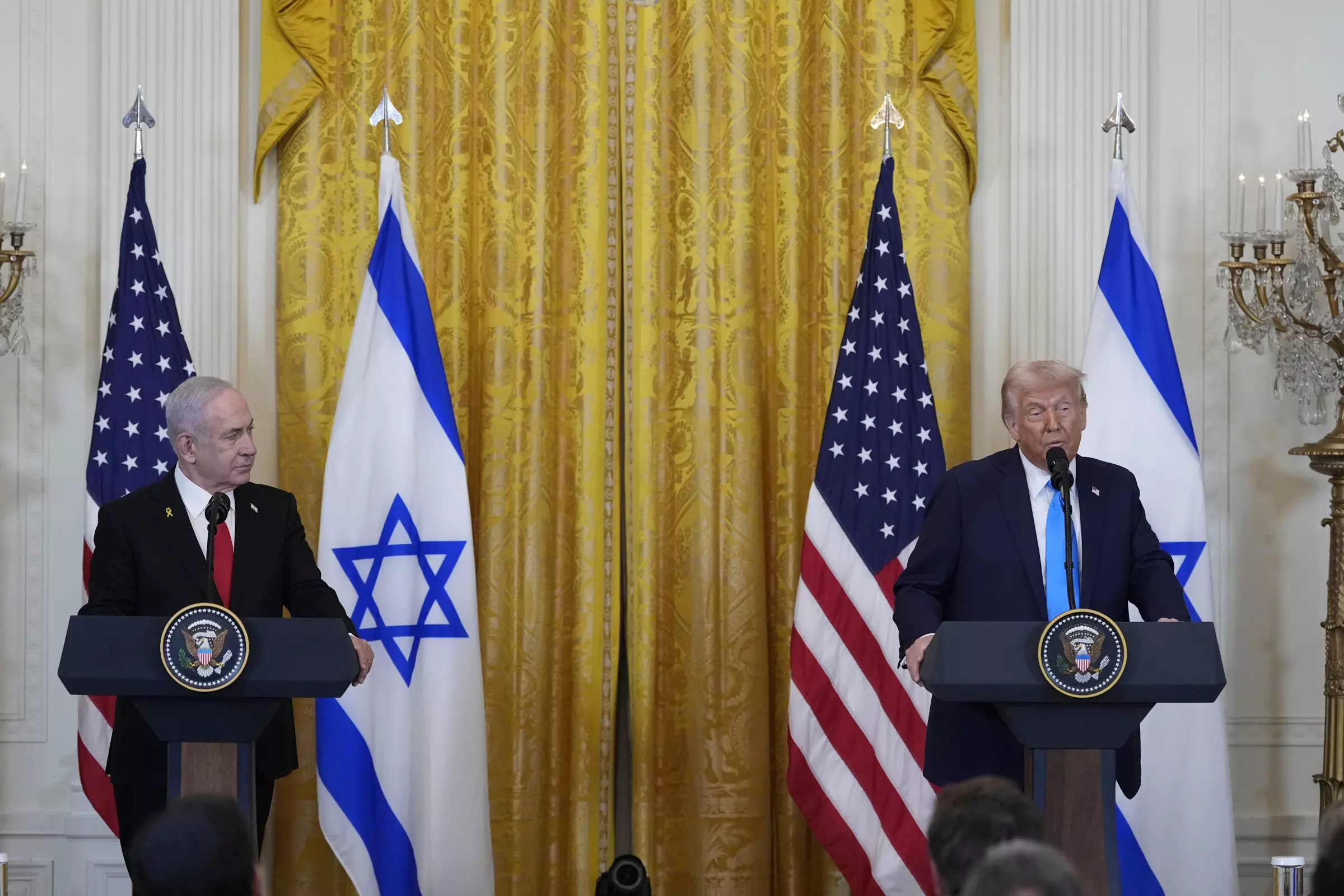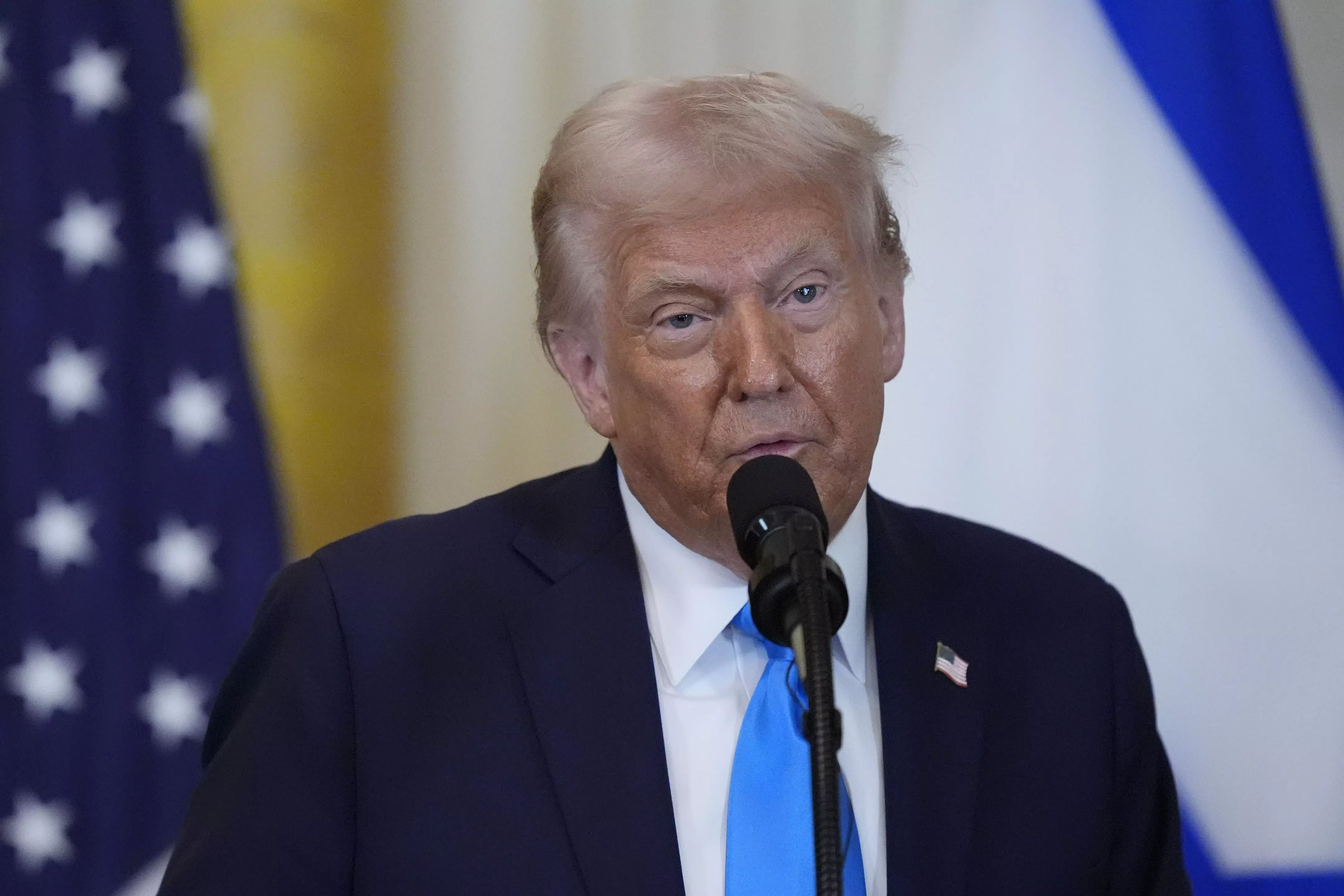
The State of Israel is planning to establish a nuclear power plant for electricity production. The proposed location for the facility is the Shivta area in the Negev desert. However, an alternative option is also being considered: constructing the plant in the Mediterranean Sea, a few miles west of the greater Tel Aviv area.
Currently, technological trials are being conducted to develop the next generation of reactors for electricity production, but the key issue is geopolitical: will Israel be permitted to build a nuclear power plant despite not being a signatory to the Nuclear Non-Proliferation Treaty (NPT)? 2 View gallery ( Photo: shutterstock ) According to the plan, the nuclear power project will be announced next year, construction will begin in 2029, and by 2037 it is expected to supply electricity to the grid. The goal is that by 2050, half of Israel's electricity consumption will be supplied by nuclear power plants. "This will ensure Israel's energy independence and economic prosperity for future generations," states a document prepared by the Ministry of Energy and Infrastructure and the National Security Council.

Notably, all recent heads of the Atomic Energy Committee support the plan, including Moshe Edri, the current chair, and his predecessors Zeev Snir, Shaul Horev, and Gideon Frank. Energy and Infrastructure Minister Eli Cohen stated, "Nuclear energy is the future of Israel's energy sector. It will help diversify Israel's energy sources and provide a vital solution to the country's energy needs in the coming decades.
In the coming months, I will work to present the government with a professional assessment to determine the feasibility of constructing a nuclear energy facility." The document notes that this is a unique opportunity to garner international support for Israel's nuclear facility. Reasons include the global trend of returning to nuclear energy for electricity production, with 30 countries declaring plans to triple nuclear output using advanced nuclear technologies.
Additionally, the return of Donald Trump to the White House, support for Israel in Congress and the Senate, and possible normalization agreements with Saudi Arabia could provide the necessary diplomatic momentum to overcome the NPT obstacle. Another governmental body, the Inter-Ministerial Committee for Reviewing Natural Gas Policy and Strengthening Energy Security, recently recommended the use of nuclear energy for electricity production in Israel. As first reported by Ynet, the committee, led by Yossi Dahan, Director-General of the Ministry of Energy and Infrastructure, has advocated for expanding Israel's natural gas exports while integrating new energy sources, with nuclear energy being one of the primary options.
Minister Cohen explained that electricity demand in Israel is growing at an exceptional rate—approximately 4% annually. In addition to households and industries, new energy consumers have emerged, such as electric vehicles and the rapidly increasing number of data centers. According to Cohen, Israel's gas reserves will only last another 22 years: "We must seriously consider additional energy sources.
If new gas fields are discovered, that would be excellent. If not, nuclear energy can be a viable solution," he added. There are many benefits to generating electricity using a nuclear reactor.
It is a green energy source that does not emit carbon into the atmosphere. It also eliminates the need to purchase and transport fuels, coal, or gas globally, and the cost of electricity production is comparable to gas and cheaper than solar panels. On the other hand, there are concerns about nuclear reactors for electricity production in Israel.
For example, potential malfunctions, such as what occurred at Chernobyl, or earthquakes that could lead to catastrophic disasters, as seen in Fukushima. Additionally, Israel faces a unique risk: a missile or drone strike on the nuclear reactor could cause a disaster. The Nuclear Non-Proliferation Treaty was first signed in 1968 and ratified in 2007 by 189 countries worldwide.
Israel is one of only five countries not signed onto the treaty, alongside India, Pakistan, North Korea, and South Sudan. Over the years, Israel has maintained a policy of ambiguity regarding its nuclear capabilities, although several politicians, including former Prime Ministers Ehud Barak and Ehud Olmert, have explicitly mentioned Israel's nuclear power. The hurdle cleared in order to facilitate easier nuclear energy production The primary reason for nuclear energy's resurgence on the global stage is new technology that allows for the rapid construction of nuclear power plants while reducing associated risks that led to disasters like Chernobyl or Fukushima.
This new technology, known as Small Modular Reactors (SMRs), is the latest innovation in the energy sector. These reactors consist of small, standalone power production units that can be combined to achieve the required output. 2 View gallery Energy Secretary Eli Cohen ( Photo: GPO ) Nuclear power plants offer numerous advantages from a data perspective.
They do not emit carbon into the atmosphere, are not dependent on sunlight or wind, and require minimal land for construction. SMRs are becoming increasingly popular, particularly among major tech companies such as Amazon, Google, Microsoft, and Meta, which are preparing to adopt the technology as a private power supply for their massive data centers worldwide. Companies manufacturing these reactors have become stock market darlings, with their shares rising by hundreds of percentage points.
Data centers, which power cloud services and artificial intelligence worldwide, are insatiable electricity consumers. The size of data centers, once measured in square meters, is now determined by the amount of electricity they consume. Centers in Israel consume 20 to 30 megawatts, but in the U.
S., mega-centers can require 100 megawatts or more. Major cloud companies see small nuclear reactors as a solution to challenges, such as strict air pollution regulations and the inability to meet enormous electricity demands, often comparable to the consumption of a large city.
According to the International Energy Agency (IEA), data centers are expected to account for 32% of global electricity consumption. In response, several tech giants are taking action. Microsoft announced it would operate nuclear reactors to supply 35% of the electricity for its data centers in Virginia.
Additionally, it plans to reopen the Three Mile Island reactor, which was shut down following a 1979 accident, by 2028. Google announced plans to purchase electricity from Kairos Power's small nuclear reactors starting in 2030. Amazon revealed it is building a massive data center near a nuclear power plant in Pennsylvania and is also investing in three small reactors by X-energy.
Get the Ynetnews app on your smartphone: Google Play : https://bit.ly/4eJ37pE | Apple App Store : https://bit.ly/3ZL7iNv In Israel, the data center sector is rapidly growing, with dozens of sites being developed nationwide.
Just this week, Nvidia announced plans to establish a 10,000-square-meter AI development data center with a 30-megawatt capacity. These centers join existing ones from companies like MED1 and Binat Data Centers. Amazon (AWS) and Google, which won the government's "Nimbus" cloud tender in 2020, also built significant data centers in Israel.
Companies like Microsoft and Oracle, which lost the tender, have nonetheless established competing facilities. Amid this growing demand, Israel is also considering plans for small nuclear power plants to supply energy to data centers. While these plans await government approval, preparation for the new era is already underway.
The Israel Electric Corporation CEO Meir Spiegler stated that nuclear energy is being examined as part of a broader effort to address these challenges. "We are exploring technologies through an innovation unit," he said. "Any energy production alternative that improves efficiency, reduces pollution, and enhances reliability is welcome, whether it’s hydrogen, energy storage, or nuclear power.
What is possible in Europe can also happen in Israel." However, Spiegler emphasized that the final decision does not rest with the IEC. "This is the responsibility of the Electricity Authority, the Ministry of Energy, and other regulators," he said.
Meanwhile, the Electricity Authority and the Ministry of Energy continue to explore integrating nuclear power into Israel's energy mix, waiting for breakthroughs in technology and policy that could facilitate its adoption. >.















